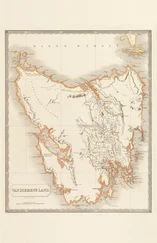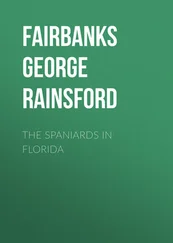Joshua Giddings - The Exiles of Florida
Здесь есть возможность читать онлайн «Joshua Giddings - The Exiles of Florida» — ознакомительный отрывок электронной книги совершенно бесплатно, а после прочтения отрывка купить полную версию. В некоторых случаях можно слушать аудио, скачать через торрент в формате fb2 и присутствует краткое содержание. Жанр: foreign_antique, foreign_prose, на английском языке. Описание произведения, (предисловие) а так же отзывы посетителей доступны на портале библиотеки ЛибКат.
- Название:The Exiles of Florida
- Автор:
- Жанр:
- Год:неизвестен
- ISBN:нет данных
- Рейтинг книги:5 / 5. Голосов: 1
-
Избранное:Добавить в избранное
- Отзывы:
-
Ваша оценка:
- 100
- 1
- 2
- 3
- 4
- 5
The Exiles of Florida: краткое содержание, описание и аннотация
Предлагаем к чтению аннотацию, описание, краткое содержание или предисловие (зависит от того, что написал сам автор книги «The Exiles of Florida»). Если вы не нашли необходимую информацию о книге — напишите в комментариях, мы постараемся отыскать её.
The Exiles of Florida — читать онлайн ознакомительный отрывок
Ниже представлен текст книги, разбитый по страницам. Система сохранения места последней прочитанной страницы, позволяет с удобством читать онлайн бесплатно книгу «The Exiles of Florida», без необходимости каждый раз заново искать на чём Вы остановились. Поставьте закладку, и сможете в любой момент перейти на страницу, на которой закончили чтение.
Интервал:
Закладка:
This pretended treaty gave the State of Georgia a large territory; and the eighth article provided, that “the Indians shall restore all the negroes, horses and other property, that are or may hereafter be among them, belonging to the citizens of this State, or to any other person whatever, to such person as the governor shall appoint.” 6 6 Vide Report of Hugh Knox, Secretary of War, to the President, dated July 6, 1789. American State Papers. Vol. V. page 15, where the Treaty is recited in full.
This attempt to make a treaty by the State of Georgia, in direct violation of the articles of Confederation, and to bind the Creek nation by an act of the representatives of only two of their towns, constitutes the first official transaction of which we have documentary evidence, in that long train of events which has for seventy years involved our nation in difficulty, and the Exiles of Florida in persecutions and cruelties unequaled under Republican governments.
The Commissioners of the United States made report of their proceedings to Congress; and those of Georgia reported to the governor of that State. 7 7 Vide papers accompanying the Report of the Secretary of War, above referred to, marked A, and numbered 1, 2 and 3.
Their report was transmitted to the Legislature, and that body, with an arrogance that commands our admiration, passed strong resolutions denouncing the action of the Federal Commissioners, commending the action of those of Georgia, and asserting her State sovereignty in language somewhat bombastic.
Soon after the making of this pretended treaty, the Creeks commenced hostilities, murdering the people on the frontiers of Georgia, and burning their dwellings. The Spanish authorities of Florida were charged with fomenting these difficulties, and the Congress of the United States felt constrained to interfere. 8 8 Vide letter of James White to Major General Knox, of the 24th May, 1787. American State Papers, Vol II, Indian Affairs.
The Commissioners previously appointed to form a treaty with the Creeks, were, by a resolution of the Continental Congress, adopted Oct. 26, instructed to obtain a treaty with the Indians which would secure a return of all prisoners, of whatever age, sex or complexion, and to restore all fugitive slaves belonging to citizens of the United States . 9 9 American State Papers, Vol. V, page 25.
This resolution was the first act on the part of the Continental Congress in favor of restoring fugitive slaves. It was adopted under the articles of Confederation, before the adoption of our present constitution, and of course constitutes no precedent under our present government; yet it introduced a practice that has long agitated the nation, and may yet lead to important and even sanguinary results.
Without awaiting the action of Congress, the authorities of Georgia, by her agents, entered into another treaty, at a place called “Shoulderbone,” by which the Creeks appear to have acknowledged the violation of the Treaty of Galphinton, and again stipulated to observe its covenants. 10 10 Vide Documents accompanying the Treaty of New York; Am. State Papers, Vol. I, Indian Affairs.
We have no reliable information as to the number of the Creek towns represented at the making of this third treaty by Georgia. The whole transaction was by the State, in her own name, by her own authority, without consent of Congress, and all papers relating to it, if any exist, would of course be among the manuscript files of that State. It is believed that Georgia never printed any of these treaties; and we can only state their contents from recitals which we find among the State papers of the Federal Government. It is however certain, that the Creeks denied that any such treaty had been entered into; and they continued hostilities, as though no such treaty had been thought of by them. This pretended Treaty of Shoulderbone exerted no more moral influence among the Creeks than did that of Galphinton. The war continued between the people of Georgia and the Creeks. The savages appeared to be aroused to indignation by what they regarded as palpable frauds. Excited at such efforts to impose upon them stipulations degrading to their character, they prosecuted the war with increased bitterness.
The natural results of such turpitude, induced Georgia to be one of the first in the sisterhood of States to adopt the Federal Constitution (Aug. 28). Her statesmen expected it to relieve their State from the burthens of the war which then devastated her border.
Soon as the Federal Government was organized under the constitution, the authorities of Georgia invoked its aid, to protect her people from the indignation of the Creek Indians.
General Washington, President of the United States, at once appointed Commissioners to repair to the Indian country, ascertain the real difficulty, and if able, they were directed to negotiate a suitable treaty, in the name of the United States. The State of Georgia claimed title to the territory ceded by the treaties of Galphinton and Shoulderbone; while the Creeks entirely repudiated them, declaring them fraudulent, denying their validity, and refusing to abide by their stipulations. The governor of Georgia placed in the hands of the Commissioners of the United States, a list of property which had been lost since the close of the Revolution by the people of Georgia, for which they demanded indemnity of the Creeks. This list contained the names of one hundred and ten negroes, who were said to have left their masters during the Revolution , and found an asylum among the Creeks. The Treaty of Galphinton contained a stipulation on the part of the Creeks, to return all prisoners, of whatever age, sex or color, and all negroes belonging to the citizens of Georgia, “ then residing with the Creeks .”
Arrangements had already been made with the chiefs, warriors and principal men of the Creek nation, to meet the Commissioners of the United States at Rock Landing, on the Oconee River. The Commissioners were received by the Indians with great respect and formality; but soon as they learned that the Commissioners were not authorized to restore their lands, they broke off all negotiation, promising to remain in peace, however, until an opportunity should be presented for further negotiations.
The failure of this mission was followed by the appointment of Col. Willett, an intrepid officer of the Revolution, who was authorized to proceed to the Creek nation, and, if possible, to induce its chiefs and headmen to repair to New York, where they could negotiate a new treaty, without the interference of the authorities or people of Georgia.
Col. Willett was successful. He induced the principal chief, McGillivray, the son of a distinguished Indian trader, together with twenty-eight other chiefs and warriors, to come on to New York, for the purpose of forming a treaty with the United States, and settling all difficulties previously existing between Georgia and their nation. On their way to New York, they were received at Philadelphia, by the authorities of that city, with great ceremony and respect. Their vanity was flattered, and every effort made to induce them to believe peace with the United States would be important to both parties.
At New York they found Congress in session. Here they mingled with the great men of our nation. The “Columbian Order,” or “Tammany Society,” was active in its attentions. They escorted the delegation to the city, and entertained them with a public dinner; and made McGillivray, the principal chief, a member of their society. In this way, the minds of the Indians were prepared for entering into the treaty which followed.
Читать дальшеИнтервал:
Закладка:
Похожие книги на «The Exiles of Florida»
Представляем Вашему вниманию похожие книги на «The Exiles of Florida» списком для выбора. Мы отобрали схожую по названию и смыслу литературу в надежде предоставить читателям больше вариантов отыскать новые, интересные, ещё непрочитанные произведения.
Обсуждение, отзывы о книге «The Exiles of Florida» и просто собственные мнения читателей. Оставьте ваши комментарии, напишите, что Вы думаете о произведении, его смысле или главных героях. Укажите что конкретно понравилось, а что нет, и почему Вы так считаете.












